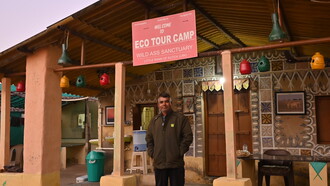Racism and racial discrimination are global scourges affecting millions of people in all countries of the world. Societies worldwide remain alarmed over the crisis of global racism which is taking ever more violent and aggressive forms. The sweeping rise of intolerance and racism worldwide has continued unabated and resulted in a toxic environment where the spread of hatred, bigotry, racism and the fear of “the Other” have become a daily reality.
A political and sociological analysis reveals the sweeping rise of intolerance in recent decades, in terms of both intensity and scale, as a hitherto unprecedented phenomenon that needs to be urgently and appropriately addressed, considering its complexity.
New and contemporary manifestations of racism, prejudice, xenophobia and intolerance undermine the endeavours to move towards a more peaceful world. Recent terrorist attacks and extreme right-wing plots have demonstrated clearly that world society lives in dangerous times when the rise of hate ideologies erupts into violence unexpectedly.
Innocent people in all parts of the world – regardless of religious belief, cultural origin and ethnicity – continue to suffer daily from this scourge one could describe as “social cancer” that is fast spreading its roots.
In all cases, however, the position of the political leadership of countries concerned can either dampen or exacerbate racism and its handmaiden hate speech.
The belief in the inherent superiority of a particular race fuels violent ideologies and denies justice and equal opportunities.
In the Middle East and North Africa region, the cultural and religious heritage of societies is under threat. The contemporary turmoil affecting this region has undermined its diverse multicultural and multi-religious heritage for decades.
A similar situation likewise prevails in other parts of the developing world: In Myanmar, the Muslim Rohingya population are denied equal citizenship rights. In parts of Africa, as witnessed in Uganda, the Central African Republic and in Nigeria, violent extremism has indulged in killings of innocent civilians.
At the same time, the spread of xenophobia and racism is gaining strength equally in the developed parts of the world referred to as the cradle of democracy, of liberalism and of Enlightenment. Right-wing rhetoric and hate speech have become more frequent and widespread and threatens to fuel prejudice, xenophobia and marginalization towards minority groups.
In light of this ominous situation and the surge of global racism in all regions of the world, the international community must commit to strengthening collective efforts to establish a global dialogue on the promotion of a culture of tolerance and peace at all levels, based on respect for human rights and for the diversity of religions and beliefs.
More than ever, there is a need to take a stand against all forms and manifestations of racism, racial discrimination and related intolerance in societies of the Global South and the Global North and to address the root-causes of these scourges as identified in the Durban Declaration and Programme of Action (DDPA).
The DDPA provides a roadmap to stem the tide against racism, racial discrimination and related intolerance. It affirms in paragraph 66:
The ethnic, cultural, linguistic and religious identity of minorities, where they exist [and I would prefer to refer to them as specific social segments], must be protected and that persons belonging to such minorities [or social segments] should be treated equally and enjoy their human rights and fundamental freedoms without discrimination of any kind.
In this connection and in light of the prevailing manifestations of racism, racial discrimination, xenophobia and related intolerance, there is an imperative need for the full and effective implementation of the DDPA and to pursue action-oriented policy prescriptions to address these scourges.
A vital component of this required strategy is to ensure universal recognition and respect of equal citizenship rights for all throughout the world, reject the instrumentalization of religions and promote the celebration of social and cultural diversity in resilient and inclusive societies.
It also requires political will, unity of purpose and renewed efforts to enhance international cooperation against the crisis of global racism.















